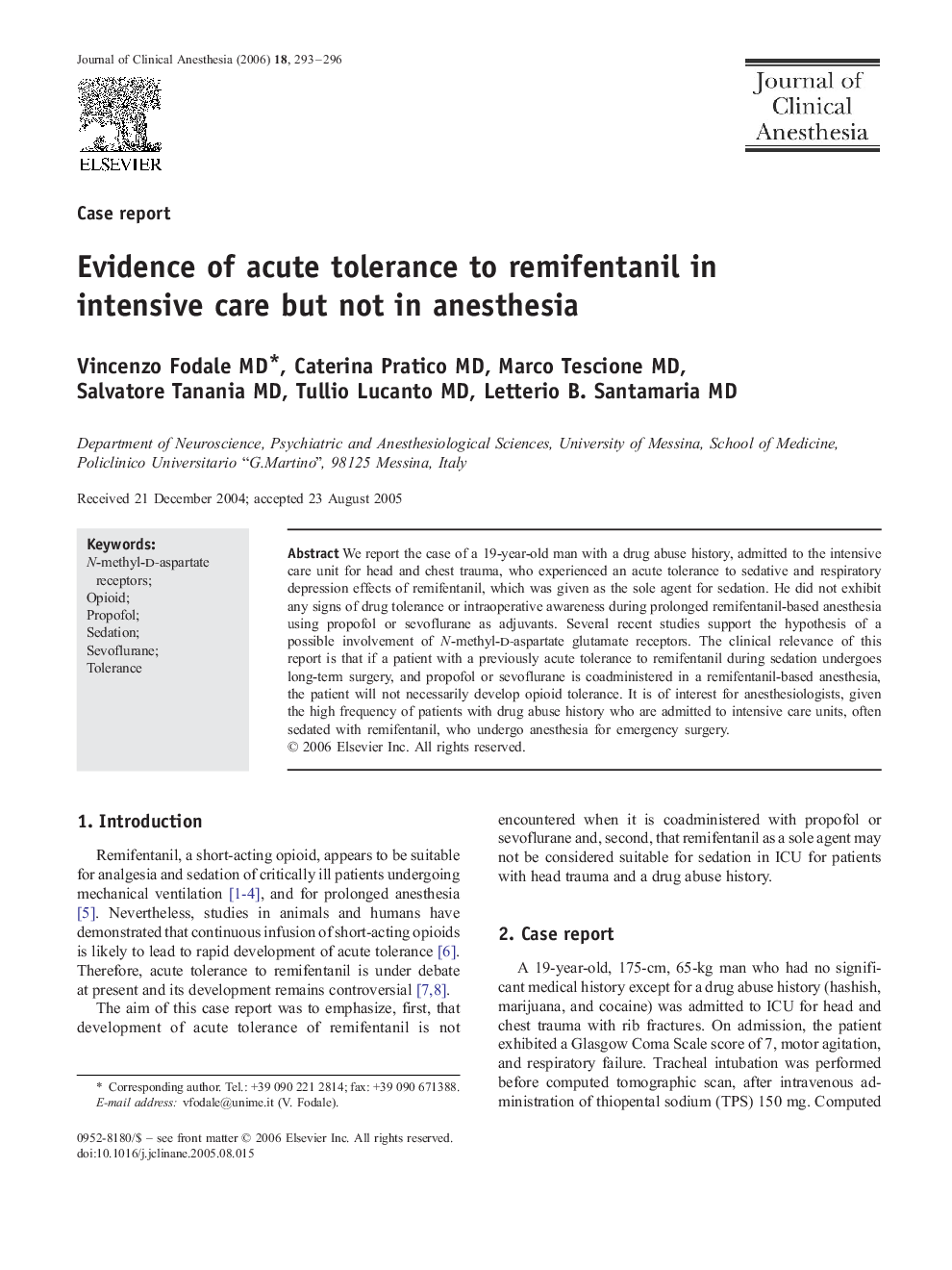| Article ID | Journal | Published Year | Pages | File Type |
|---|---|---|---|---|
| 2763874 | Journal of Clinical Anesthesia | 2006 | 4 Pages |
We report the case of a 19-year-old man with a drug abuse history, admitted to the intensive care unit for head and chest trauma, who experienced an acute tolerance to sedative and respiratory depression effects of remifentanil, which was given as the sole agent for sedation. He did not exhibit any signs of drug tolerance or intraoperative awareness during prolonged remifentanil-based anesthesia using propofol or sevoflurane as adjuvants. Several recent studies support the hypothesis of a possible involvement of N-methyl-d-aspartate glutamate receptors. The clinical relevance of this report is that if a patient with a previously acute tolerance to remifentanil during sedation undergoes long-term surgery, and propofol or sevoflurane is coadministered in a remifentanil-based anesthesia, the patient will not necessarily develop opioid tolerance. It is of interest for anesthesiologists, given the high frequency of patients with drug abuse history who are admitted to intensive care units, often sedated with remifentanil, who undergo anesthesia for emergency surgery.
